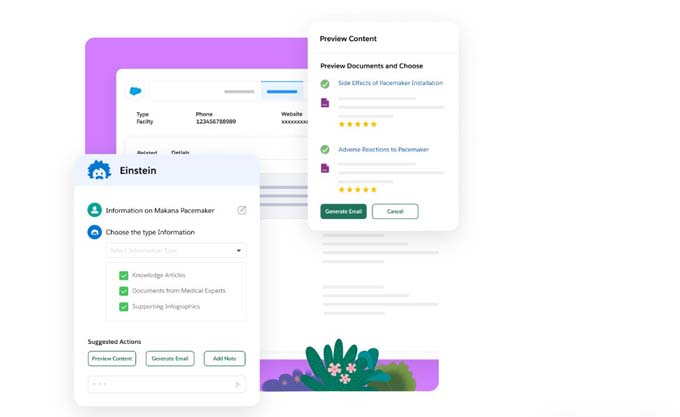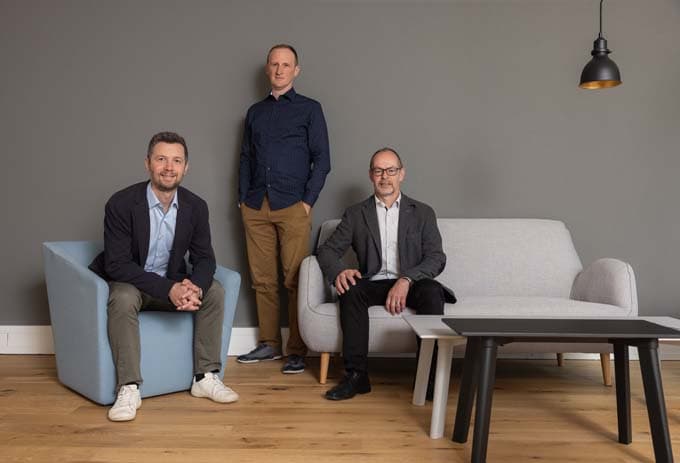Prix SVC Economic Area Zurich 2024: Five companies nominated for the SME award
The SME network SVC (Swiss Venture Club) will award the Prix SVC Economic Area Zurich for the ninth time on November 26, 2024. Five successful companies from the region have been nominated for the grand final and can still hope to win the prestigious prize: Hauenstein AG from Rafz, Hawa Sliding Solutions AG from Mettmenstetten, Luzi AG from Dietlikon, RepRisk AG from Zurich and Schneider Umweltservice AG from Meilen.

The sponsor and initiator of the Prix SVC awards is the SVC (Swiss Venture Club), an independent association for the promotion and support of SMEs in Switzerland. With the Prix SVC Wirtschaftsraum Zürich, it honors exemplary companies that impress with their innovative products and services, their corporate culture, the quality of their employees and management and their sustainable track record.
The selection of companies and the nominations for the Prix SVC are made by an independent jury of experts with strong regional roots. Its President, Christopher Blaufelder, Partner at McKinsey & Company Switzerland, is delighted with the quality of the 2024 finalists: "I am very much looking forward to the Prix SVC and believe the decision as to who will win the prize has never been as challenging as this year. We have consistently high-quality companies from a wide range of industries in the final selection - from building solutions to AI in finance and recycling. All with great employees and a clear focus on quality and innovation."
The award ceremony will take place on Tuesday, November 26, 2024, at the Kongresshaus Zurich. Around 1,500 guests from the worlds of business, science, politics and culture are expected to attend. The award ceremony will be hosted by Nik Hartmann.
The 2024 finalists: five Success stories from the Zurich economic area
Hauenstein AG (Rafz ZH)
The Hauenstein AG was founded in 1890 by Walter Hauenstein. Today, the company is one of the largest and most efficient in the "green sector" in Switzerland. The family business employs a total of around 180 people in the Rafz tree nursery and the four garden centers in Rafz, Zurich, Baar and Winterthur. Hauenstein AG has been focusing on sustainability for many years. In particular, the company produces its own "native, hardy plants", irrigates its crops with water from the Rhine (no drinking water used) and uses neither herbicides nor peat (since 2002) in container plant production.
Hawa Sliding Solutions AG (Mettmenstetten ZH)
The approximately 240 employees of the Hawa Sliding Solutions AG - the global technology and market leader for sliding solutions - create new applications every day to make rooms, furniture and façades more functional, economical and flexible. In addition to its headquarters and two production facilities in Switzerland (in Mettmenstetten and Sirnach), the company supports its customers around the world with sales companies in the USA, Dubai and Singapore as well as over 200 sales and specialist partners in the selection and implementation of the right sliding hardware for their individual requirements.
Luzi AG (Dietlikon ZH)
The Luzi AG specializes in the development and production of fragrance creations. Founded in 1926, the company is now run as a family business by the third generation of the Altenburger family. As a globally active fragrance house, Luzi AG supplies discerning customers in the perfume, cosmetics and household goods industries. Around 280 employees at eight locations worldwide combine traditional craftsmanship with state-of-the-art technology to offer their partners tailor-made solutions. With "Earth-Conscious Creativity Luzi AG has launched a number of initiatives in order to become a pioneer in the industry in ecological and social matters.
RepRisk AG (Zurich)
RepRisk AG is a global market leader in the identification and assessment of business and ESG risks. RepRisk uncovers risks that companies do not disclose, such as deforestation, human rights violations and corruption. This gives decision-makers a clearer view of their business relationships and investments. RepRisk's data is based on a transparent and consistent methodology that has been refined over two decades using artificial intelligence and highly skilled analysts. Eighty of the world's leading banks, 17 of the 25 largest investment managers, leading global corporations and the world's largest sovereign wealth funds rely on RepRisk's daily updated data.
Schneider Umweltservice AG (Meilen ZH)
What began in 1905 as a small haulage business in the "Rosengarten" in Meilen has grown over four generations into a successful recycling and waste disposal company. The Schneider Umweltservice AG is constantly looking for innovative and even more environmentally friendly solutions to return as many raw materials as possible to the recycling loop and pursues a comprehensive sustainability strategy. With around 370 employees, Schneider Umweltservice AG currently operates eleven recycling centers and five collection points. Mobile collection points are also used. This makes Schneider Umweltservice AG the leading disposal service provider for all recyclable materials and waste in the economic region of Zurich, Zug and Lucerne.
Source and further information: www.svc.swiss


















